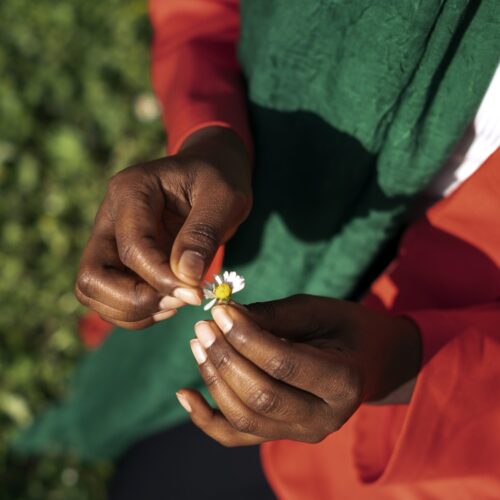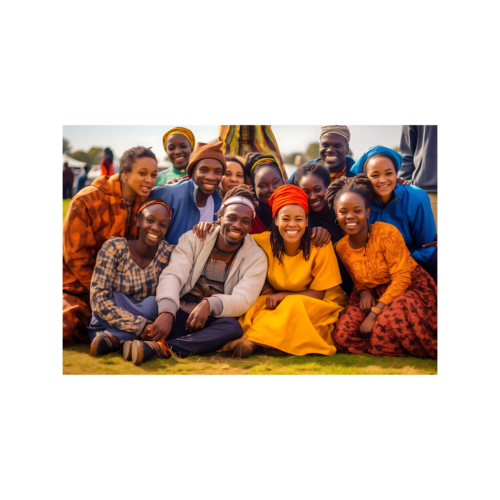The Kenya Plastics Pact
The Kenya Plastics Pact
It is an ambitious, collaborative initiative that brings together stakeholders across the whole plastics value chain to transform the current linear plastics system into a circular economy for plastics. All stakeholders involved sign up to a joint set of ambitious and time-bound targets (Elimination of all problematic & unnecessary plastics, 100% Reusable & Recyclable plastics, 40% Recycled plastics, 15% Recycled plastic back into packaging content), ensuring that this collaboration will drive significant change by 2030. At the heart of the Kenya Plastics Pact’s vision are three key guiding principles: the elimination of unnecessary plastics, the promotion of innovation to ensure that essential plastics are designed for reusability or recyclability, and the establishment of systems that allow plastics to circulate within the economy while preventing their entry into the environment. The overarching goal is to surmount the hurdles impeding circularity in the plastic packaging sector by forging strong public-private partnerships and rallying the sector around a set of ambitious targets that are thoughtfully tailored to our local context.

Project Objectives
To create a circular economy for plastic packaging in which it never becomes waste.


Target Groups & Impact
Target Group(s): The Kenya Plastics Pact membership community features representatives from every stage of the plastics packaging supply chain. This includes plastic packaging manufacturers, importers, exporters, prominent FMCG brands, retailers, committed small and medium businesses, informal waste pickers and recyclers, influential industry associations, environmental NGOs, advocacy groups/civil society, and national and county governments.
Impact: The KPP has made commendable progress since its inception:
- Creating an active multistakeholder platform with brands, recyclers, producers, users, manufacturers, government, civil society, and NGOs.
- Establishing working groups focusing on the various targets.
- Launching the 2030 roadmap.
- Launching the phase one list of problematic and unnecessary plastic items for elimination (Target 1).
- Launching the design guidelines for recyclability in Kenya for PET bottles and HDPE bottles & jars) (Target 2).
- Helping businesses comply with the Extended Producer Responsibility (EPR) regulations and transition to a circular economy for plastic packaging in Kenya by linking with NEMA to provide capacity building and technical support towards assisted compliance.
- Successfully partnering with WWF-Kenya to spearhead the #LetsBeClear Innovation Challenge, a great way to drive plastic producers and users in Kenya to commit to re-designing and producing more sustainable and recyclable packaging based on the Design Guidelines (Target 3).
The objective is to transition colored plastic packaging to clear PET and eliminate problematic additives from HDPE bottles and jars that make recycling difficult. Collective consumer awareness campaigns to drive positive consumer behavior are also expected outcomes of this initiative.
Leading the way in our collective commitment, Bio Foods has pledged to adopt rPET by 50% by 2026. Similarly, Bidco Africa is making strides by removing color from one of its beverage SKUs and eliminating the security cap seal in its Brand Planet Aqua Water, reducing unnecessary plastic by one metric ton in 2022. Silafrica is working towards achieving 100% recyclable content in its plastic packaging by 2025. Line Plast Group is transitioning from HDPE printing to labeling (water-based) by 80% and from tinted PET bottles to clear PET by 2025.
Funding Partners: The Government of the Republic of France, through the French Embassy in Kenya, provided financial support for implementing the COAST Project through the PISSCA Fund.
Duration: 2020 to 2022.
Contacts. You can reach us at pracksidis@sustainableinclusivebusiness.org
Funding Partners: The development and implementation of the Kenya Plastics Pact are led by Sustainable Inclusive Business, the knowledge center under the Kenya Private Sector Alliance (KEPSA), with financial support from WRAP – the UK-based global environmental NGO, MAVA Foundation, DEFRA – Department for Environment Food and Rural Affairs, UK Research and Innovation (UKRI), Foreign, Commonwealth & Development Office (FCDO) and the Ellen MacArthur Foundation.
Extra Information
-
- The Plastics Challenge: A study conducted by IUCN shows that 27% of plastic waste generated in Kenya is collected. Out of this, only 8% is recycled, with the remainder being landfilled or incinerated – or in the worst-case scenario, ending up in the environment.
- The Solution: A radical transformation in how we use natural resources is central to meeting the needs of future generations. There is no question about it, the world needs a new economy; a circular economy. To address the problem at its source, we need to rethink how we design, use and reuse plastics, and move from a linear take-make-waste economy to a circular economy, which keeps plastics in use and out of the environment.
- KPP Targets:
- Eliminate unnecessary or problematic single-use plastic packaging items through redesign, innovation, and reuse delivery models.
- 100% of plastic packaging is reusable or recyclable.
- 40 % of plastic packaging is effectively recycled.
- 15% average recycled content across all plastic packaging.
- The Kenya Plastics Pact will meet these targets by:
-
- Building a clearly defined roadmap for how the pact members and supporters will collectively reach them.
- Measuring and communicating progress through public annual reporting.
- Co-designing and implementing pioneer and collaborative projects across the country.
- Sharing knowledge, experiences, and learnings with national, regional, and global experts within the Plastics Pact Network.
- Who is involved: The Kenya Plastics Pact has 40 Members and Supporters, with representatives from every stage of the plastics packaging supply chain.
- Benefits of joining KPP: Being part of a collective group of multi-stakeholders in the plastics value chain (producers, users, retailers, hospitality, waste collectors, recyclers, environmentalists, NGOs, CBOs) coming together to create and implement a Roadmap to a collective vision: a circular economy for plastic packaging. Co-create solutions, communication, and commitments that work better for all.
- Duration: Long-term with a vision to 2030.
- Project Outcomes through the Roadmap to 2030:
Target One:
- A defined list of problematic or unnecessary plastic packaging and items and take measures to address them.
- Innovations and technical solutions identified for key problematic packs/formats.
- Link the list to existing legislations, and ban(s) and highlight the overlap.
- Engage citizens to adopt behaviours that support the elimination of problematic items.
Progress Made
- Members have collectively developed and published a list of problematic and unnecessary plastic items. Refer to the list here. The phase 1 priority list is disaggregated into plastic packaging, non-plastic packaging items and additives.
- Specific activities and outputs for Target 1 are in the Roadmap.
Target Two:
- Improved adoption of recyclable packaging.
- Improved adoption within retailers/brands of issues of reuse models.
- Increased business and citizen understanding of reuse and recycling.
- Improved understanding of policy environment relating to reuse and recycling of plastic packaging. (See T3)
Progress Made
- Definitions of recycling and recyclability have been agreed on (adopted from the Ellen MacArthur Foundation definition) and adopted to the Kenyan context.
- A list of polymers and selected plastic packaging items for design for recycling guidelines have been developed.
- Design for Recycling Guidelines for PET and HDPE bottles have been developed and published.
Target Three:
- A strategy developed and adopted for delivery of the target, (including end market development + unified reporting recycling rates).
- Improved informal recycling sector value chain.
- Ensuring investment, infrastructure, innovation and end markets to meet Target 3.
- Increased participation in plastics recycling by citizens and businesses (at home and out of home).
- Improved policy engagement and policy environment to enhance recycling of plastic packaging.
Target Four:
- Greater use of recycled plastics in the packaging (primary, secondary and tertiary) aided by improved specifications, quality and grades.
- Increased understanding and awareness of benefits and measures to improve recycled content (Business and citizen audience) in plastic packaging.
- Improved policy engagement and policy environment for enhanced recycled content of plastic packaging.
- Join the Kenya Plastics Pact: KPP offers a great value proposition by joining the growing number of members and supporters.
- Circular Design: A platform to align and engage in circular packaging design, including design for recycling and reuse and eliminating problematic and unnecessary plastic packaging, to help members meet the targets and EPR obligations.
- Knowledge Exchange: Access to international and national technical expertise, tools, best practices, lessons learned, and innovations to increase plastics’ circularity, covering the entire value chain.
- Collaborative Pilots and Projects: A platform to co-design and implement collaborative projects to tackle critical challenges in the value chain, including design, collection, sorting, recycling, and end markets for recycled material.
- Innovation and Investment: A platform to identify and engage in design, recycling, and recycled product innovation, including securing external funding to support innovation projects, infrastructure, and research.
- Citizen Engagement & Behavior Change: Platform to collaboratively design and implement a citizen engagement strategy to promote reuse and recycling in Kenya.
- Government Engagement: Collaborative engagements with governments and ministries to advance the circularity of plastics.
- Communication & Brand Visibility: Platform to recognize and share members’ impact activities & innovations, reporting and tracking the progress of the Pact to increase circularity.
- Contact Us. You can reach the Kenya Plastics Pact Secretariat at communication@kpp.or.ke





